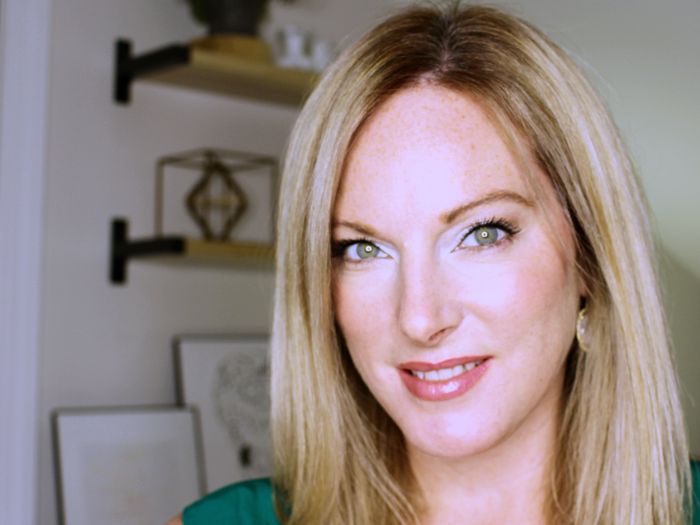- Home
- slideshows
- miscellaneous
- 7 people confess the biggest mistakes they made during the last recession - and how they'll protect themselves next time
7 people confess the biggest mistakes they made during the last recession - and how they'll protect themselves next time
1. Neglecting to make retirement contributions because of a tight budget

2. Not having cash reserves on hand to take advantage of investment opportunities

During a market crash, it can be tempting to pull back the reins on your investments, or even pull out of the stock market all together. After all, you're watching your net worth plummet by the day.
However, financial experts almost universally agree that this is a bad idea. If you pull out when the market is at all-time lows, you get paid all-time lows. If, instead, you double down on investing, you get to buy up assets at a major discount.
This is what John Kilpatrick, Chairman of Greenfield Advisors, would have done differently during the last recession, if he'd had enough liquidity on hand to take advantage of what he says were obvious opportunities coming out of the recession.
"I think a lot of deep pocket investors have made the same observation," Kilpatrick said. This is what the world's most famous investor, Warren Buffett, did. In 2008, he published an op-ed in the New York Times advising people to buy up American stocks while prices are low. This is where the now oft-cited quote, "Be fearful when others are greedy, and be greedy when others are fearful," comes from.
Kilpatrick now has "a fair amount of liquidity sitting on the sidelines, waiting patiently for the next recession."
3. Being saddled with debt during a long period of unemployment

Millennials might not remember it, but before the financial crisis, there was the dot-com bubble in 2001. The crash caused a huge number of companies, from online retailers to communication firms, to fail and shut down, and tech stocks plummeted.
During this market crash, Jackie Beck, a personal finance educator from Phoenix, found herself newly divorced, laid off, and buried in student loan debt. She took a brief temp job, but was mostly unemployed until 2005, when she finally found a part-time job.
"That's a long time to be unemployed," Beck said. "My biggest regrets were having that debt hanging over my head and not having built sources of income outside my job." You might assume you can always get another job, but during a market crash, it can be nearly impossible to find anyone who's hiring.
Beck promised herself she'd never again end up in a situation where she owed money she was unable to pay back thanks to unemployment. "I got out of debt, went from a negative net worth to positive, and focused on financial independence," she said.
Beck said these adjustments helped her immensely when it came time to weather the next recession. Her fixed expenses were low because she'd doubled down on eliminating her debt, she had an emergency fund to fall back on, and she'd diversified her income stream.
4. Becoming complacent in a tough job market

Whether you find yourself in a comfortable, stable job or unemployed with no job prospects, it's easy to become complacent.
That's what finance coach Bradley Jarryd did after graduating in 2010 and finding that the post-recession job market was grim. His biggest regret was sitting around, waiting for things to get better rather than actively investing in himself and his relationships.
"I wasted so much time playing victim rather than asking myself what I could do with all that extra time," Jarryd said. "I could have been reaching out to people, developing valuable skills, and interning for business owners."
Thankfully, he learned the lesson that networking, building your skills, and continually improving pays off, even (or perhaps especially), when the economy is down. Whether you find yourself unemployed or in a happy career, setting aside spare time to give yourself a competitive edge will help set you apart when demand for jobs is high and supply is low.
5. Failing to budget and live below your means

It's easy to let lifestyle inflation take hold, especially when you assume your paychecks will keep coming indefinitely. When you feel financially comfortable, you might fail to keep a budget and start letting expenses creep upward. This is all well and good until a financial crisis hits.
That's what happened to personal finance blogger Jaime Gibbs and her husband. They had to close their construction business when the recession hit, and her husband found himself severely underemployed, and then laid off, right as their second child was born.
"It was stressful, but during that time we sold everything we could: our luxury car, our boat, and our custom home," Gibbs said. "I had every dollar of our unemployment check budgeted and accounted for, with $1 left over to rent a cheap family movie on the weekend."
If she could go back and do it again, she would have been better about creating and sticking to a budget before things got bad. Gibbs also wishes she had created some additional streams of income to rely on to give them a cushion in their budget during unemployment.
"It wasn't all doom and gloom, however," she said. "We learned valuable life lessons during that season and are thankful for them now!"
6. Living without savings to fall back on

If you spend every penny you make and don't have a savings cushion to fall back on, you're not alone. Most Americans fall into this camp. But as Peggy Atwood, founder of The Fretired Method, learned at the end of 2008, that's a dangerous camp to be in.
"What I was not aware of back then is how important frugality is for long term financial well-being," Atwood said. "Our townhouse rent was over $3,000 per month, and I was on unpaid maternity leave."
On top of that, they were becoming new parents, and her husband's job was at risk given that he was working in the banking sector. "Every day we feared for his job," Atwood said. "We had no savings, no income-spend gap, and we were broke."
Atwood explained that they should have been living well below their means to ensure financial security, and now they do just that by ruthlessly cutting spending, aggressively increasing their income, and investing the difference. "Being financially independent means you can survive on what you have squirreled away," said Atwood. "It is an empowering place to be."
However, she did one thing right during the last recession. Instead of liquidating her investments when the stock market bottomed out, she used a $5,000 bonus to invest more and didn't touch her retirement accounts. "We heard many stories of people panic-selling at the worst possible times, stunting the growth of their portfolios forever," she said.
7. Going into the recession with debt and no savings

As several people have echoed, one of the most dangerous positions to be in when a recession hits is in debt, with no savings, and unemployed. This is how people rack up unmanageable debt, ruin their credit, and land themselves in a financial hole that can take years to get out of.
That's how public relations professional Jenelle Hamilton went into the last recession. "It was one of the most stressful times of my life," she said. She's now made sure to stay debt-free, keep her fixed costs low, and build an emergency fund.
She did one thing right during the last recession, though, and it paved the way for her current level of financial security. Finding herself unemployed and unable to get another job, she decided to take a chance on herself and start her own PR consulting agency.
"The funny thing is, that in my industry clients were cutting back on their spending budgets for advertising and marketing, but PR is where they still knew they could get a good return on investment," said Hamilton. "I managed to launch and grow a successful business during a recession and still have a big consultancy today."
With grit and business savvy, it's possible to find opportunities, even amidst the losses of a recession. To take advantage of them, though, you must set yourself on the path to financial security first.
A financial planner can help you protect your wealth against a recession. Use SmartAsset's free tool to find one now »- More personal finance coverage
- 4 reasons to open a high-yield savings account while interest rates are down
- It took less than 10 minutes to open a high-yield cash account with Wealthfront and earn more on my savings
- How to buy a house with no money down
- When to save money in high-yield savings
- Best rewards credit cards
- 7 reasons you may need life insurance, even if you think you don't
Popular Right Now
Popular Keywords
Advertisement